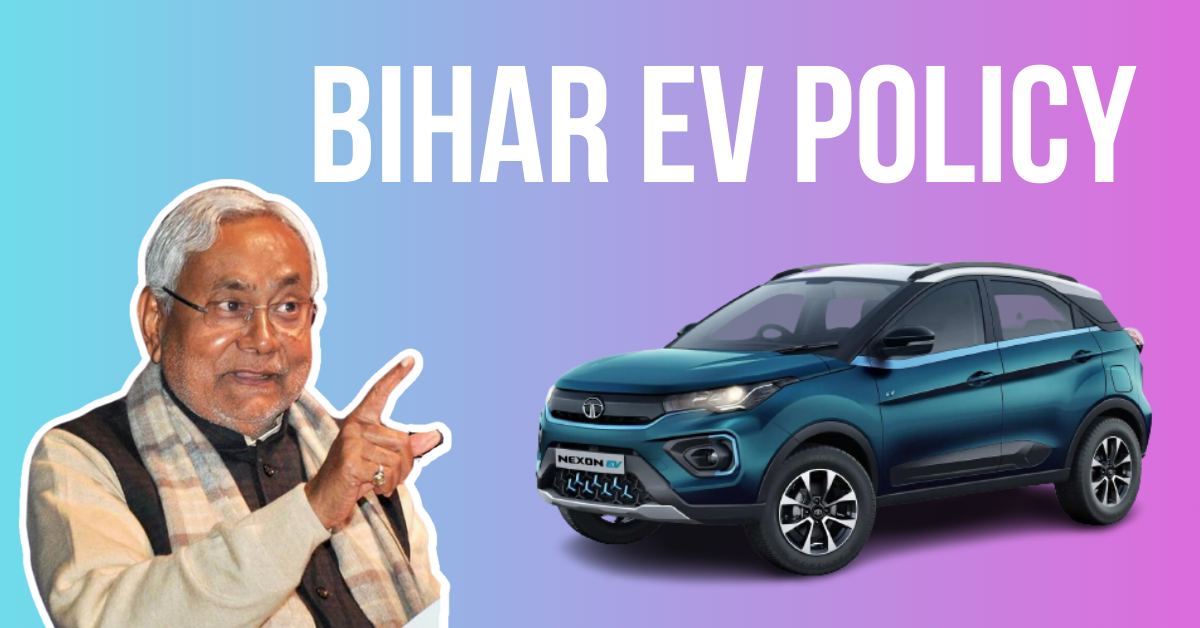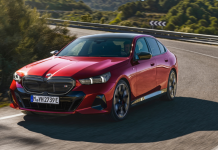
Table of Contents
Bihar EV Policy 2023
Taking a significant step toward promoting eco-friendly transportation, Nitish Kumar-led Bihar’s government has given the green light to a comprehensive Electric Vehicle (EV) policy. This policy strongly emphasizes creating a favorable environment for electric vehicles, with a specific focus on building a strong network of charging stations across the state. The Bihar Electric Vehicle Plan, aimed at guiding the state toward more eco-friendly transportation, sets ambitious targets for the next five years, reaching its peak in 2028. The goal is to have 15% of all new vehicles registered in Bihar by 2028 as electric vehicles (EVs).
In a simultaneous effort to strengthen electric mobility, the State cabinet, approved a proposal from the Transport Department to procure 400 electric buses under the PM-eBus Sewa scheme. These buses, intended to operate in different districts of Bihar, are aimed at decreasing dependence on traditional petrol and diesel-powered public transport vehicles.
Lets explore more about this important step taken by Bihar and see what all incentives and subsidies did the Bihar Government approve:
| Vehicle Type | Incentive/Rebate |
|---|---|
| Electric Two-Wheelers | Purchase Incentive: Rs. 5,000/– per KWH (First 10,000) |
| Electric Two-Wheelers | Motor Vehicle Tax Rebate: 75% to First 10,000 electric two wheelers , and 50% tax rebate to Subsequent electric two- wheelers |
| Electric Three-Wheelers | Motor Vehicle Tax Rebate: 50% |
| Electric Four-Wheelers | Purchase Incentive: Rs. 10,000/- per KWH (First 1000 electric four wheelers ) |
To encourage people to use electric vehicles, the EV policy brings in different steps. This includes reducing Motor Vehicle Tax by up to 75% and giving rewards of up to ₹1.25 lakh for the initial 1,000 personal four-wheeler EVs. Similarly, the first 10,000 personal two-wheeler EVs also enjoy advantages like Motor Vehicle Tax discounts of up to 75% and purchase incentives of up to ₹10,000.
The Chief Minister’s Initiative
Chief Minister Nitish Kumar, setting an example, has been using an electric vehicle for his travels in Patna for the last four years, highlighting the significance of environmental conservation.
Speaking on the broader objectives of the EV policy, Transport Secretary Sanjay Kumar Agarwal said:
| “The Bihar Electric Motor Vehicle Policy aims to promote an electric vehicle transport system in the State, complemented by accessible EV charging infrastructure. It seeks to enhance environmental quality by mitigating air pollution while fostering startups and investments in the electric mobility sector and its associated support industries.” |
Facilitating Electric Charging Stations
To make electricity more affordable for power charging stations, the policy grants a 30% subsidy on power tariffs for public and semi-public charging stations in the initial three years. This subsidy also extends to the setup of electric charging stations in residential apartments, with various government departments establishing public charging stations on government-owned land, as explained by Mr. Agarwal.
The policy further encourages the use of renewable energy for EV charging stations, setting approved tariff rates at ₹8/KvA for high tension EV charging stations in the financial year 2023-24. Additionally, the policy outlines provisions for incentives related to scrapping EVs and their components.
Showcasing at COP-28
It’s worth noting that the draft of the EV policy, formulated in 2022, received input from international expert agencies, including the World Resources Institute (WRI) India. WRI India CEO Madhav Pai highlighted the Bihar Electric Vehicle Policy at the United Nations Climate Change Conference of the Parties (COP-28) in Dubai, during a session focused on “Leading E-Bus Transition: Global Experiences and Learnings” on Tuesday.
CONCLUSION
Bihar’s recent moves toward electric mobility, seen in the approval of an EV policy and the acquisition of 400 electric buses, signal a significant shift toward sustainable transportation. With a focus on creating a favorable environment for electric vehicles and promoting renewable energy, these initiatives have the potential to transform Bihar’s transportation landscape, setting the stage for a cleaner and greener future.






